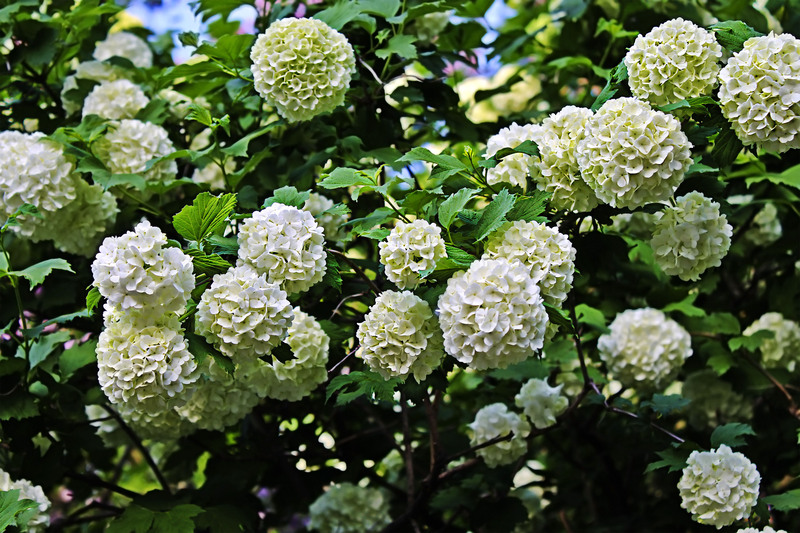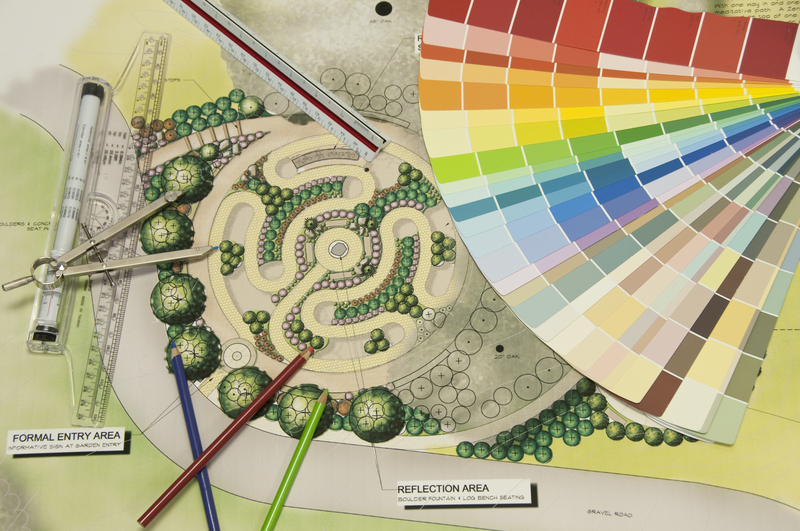Harmonize Your Garden with Peaceful Zen Landscaping Concepts
Posted on 15/09/2025
Harmonize Your Garden with Peaceful Zen Landscaping Concepts
Bringing tranquility and balance into your outdoor space isn't just a fleeting trend. Harnessing the timeless beauty of Zen landscaping can transform your garden into a sanctuary of peace, mindfulness, and natural harmony. If you seek to create a calming retreat right outside your door, Zen landscape design offers not only aesthetic value but also a spiritual dimension that welcomes relaxation and inner peace. In this comprehensive guide, discover how to harmonize your garden with peaceful Zen landscaping concepts and unlock the secrets of serene outdoor living.

What is Zen Landscaping?
Zen landscaping, also known as Japanese Zen garden design, draws inspiration from Zen Buddhism and traditional Japanese gardens. These spaces are crafted to evoke feelings of calmness, contemplation, and connection with the natural world. Zen gardens often feature minimalist arrangements, thoughtful placement of elements, and a focus on balance and simplicity.
Key elements of Zen landscaping include:
- Raked gravel or sand to symbolize water or natural patterns
- Carefully arranged rocks and stones
- Pruned shrubs, moss, and evergreen plants
- Water features such as ponds or bamboo fountains
- Footpaths, bridges, and stepping stones
- Lanterns, pagodas, and subtle decorative elements
Benefits of Adopting Peaceful Zen Landscaping Concepts
- Promotes relaxation and mindfulness
- Reduces outdoor maintenance with minimalist design
- Enhances aesthetic beauty and property value
- Provides an outdoor space for meditation and contemplation
Core Principles of Zen Garden Harmony
The foundation of a peaceful Zen landscape rests on a few fundamental principles--these help create the perfect balance between nature, structure, and space:
- Simplicity (Kanso): Embrace minimalism by limiting plants, ornaments, and colors. Every element should serve a purpose and not overwhelm the senses.
- Naturalness (Shizen): Allow the natural beauty of materials and plants to shine. Avoid artificial symmetry or ornate decorations.
- Asymmetry (Fukinsei): In Zen design, perfect balance is achieved through imperfect, asymmetrical placement, reflecting nature's unpredictability.
- Tranquility (Seijaku): Foster silence and calm with soft textures, flowing forms, and reflective surfaces.
- Subtlety (Yugen): Incorporate hidden or understated features--much of Zen beauty comes from that which is implied, not seen directly.
- Spaciousness (Ma): Use empty space intentionally; the "void" is just as crucial as solid objects in Zen landscapes.
Designing Your Serene Zen-Inspired Garden
1. Assess and Plan Your Space
Before digging in, observe your garden--note sun exposure, existing vegetation, and the flow of your outdoor environment. Sketch a basic layout, outlining areas for hardscape (rocks, gravel, pathways) and softscape (plants, moss, water features).
2. Select and Place Stones with Care
In Zen landscape design, rocks are often considered the "bones" of the garden. Select a variety of natural stones, ideally in muted tones. Arrange them purposefully, sometimes upright to symbolize mountains, or in clusters evoking islands or hills. Avoid rigid symmetry--achieve balance through asymmetry for a natural look.
3. Create Zen Sand Gardens (Karesansui)
Gravel or white sand beds are a hallmark of peaceful Zen landscaping. These dry rock gardens symbolize water or clouds. Use a rake to create flowing lines or wave patterns, which can be meditative in themselves. Surround the sand with larger rocks, and avoid over-crowding the space.
4. Incorporate Water Features
Even though dry gardens often represent water, an actual water feature adds another dimension of serenity. Consider a small pond, a bamboo water spout (shishi-odoshi), or a tranquil stream. The gentle sound of flowing water can bring a profound sense of calm.
5. Plant Selection for Zen Gardens
Choose plants that evoke calm, year-round structure, and subtle color. Favor evergreens, mosses, ferns, azaleas, and Japanese maples. Prune shrubs and trees meticulously to maintain clean lines and air circulation.
- Moss for lush groundcover
- Bamboo or Japanese maple for vertical interest
- Azaleas and camellias for seasonal blooms
- Ferns for gentle texture
6. Add Subtle Decorative Elements
Less is more in a harmonious Zen landscape. Consider stone lanterns, weathered sculptures, or a small pagoda--but use these sparingly. Their subtle presence adds to the sense of discovery and hidden beauty.
7. Design Tranquil Pathways
Stepping stones and gravel paths invite slow, mindful movement through your garden. Lay stones in gentle, sweeping patterns, and avoid straight lines. Use natural materials that blend seamlessly with the environment.
8. Embrace Open Space and Negative Space
One of the secrets of Zen garden harmony is the use of space--and sometimes, leaving a space intentionally empty. Allow for open, uncluttered areas; this visual "breathing room" is essential for evoking tranquility.
Bringing Zen Harmony to Gardens of Any Size
Many gardeners wonder if peaceful Zen landscaping concepts can be adapted to small spaces or urban environments. The answer is a resounding yes! Here's how:
Small Courtyards or Patios
- Use container-grown evergreens, moss, and bamboo to create vertical layers.
- Add a tabletop sand garden or a mini water feature for instant calm.
- Simple gravel beds and a single stone lantern can transform even the smallest balcony into a Zen oasis.
Large Gardens or Backyards
- Create contrasting areas--one with raked gravel, another with mossy shade, and a secluded bench for meditation.
- Draw the eye with meandering pathways and strategically placed rocks.
- Use screening plants or bamboo fences to provide privacy and intimacy.
Choosing the Right Materials for Your Peaceful Zen Landscape
The choice of materials is crucial for creating an authentic and peaceful Zen-inspired ambiance. Natural, subdued, and earthy materials not only reflect traditional Japanese gardens but also blend seamlessly with your local environment.
- Gravel and sand: White, beige, or gray tones for raked patterns
- Natural stone: Unpolished, irregular slate, granite, or fieldstones
- Wood: Weathered fences, small bridges, or natural decking in faded finishes
- Bamboo: For accents, screens, or water features
- Ceramics: Subtle, handcrafted pots or lanterns
Tips for Maintaining Harmony in Your Zen Garden
Maintaining a Zen-inspired outdoor space isn't labor-intensive, but it requires regular, mindful attention. Follow these essential tips:
- Rake the gravel or sand regularly to refresh patterns and remove debris.
- Prune trees and shrubs to maintain shapes and enhance visual flow.
- Weed diligently; a Zen garden's beauty is in its uncluttered appearance.
- Clean water features and check for algae or debris.
- Swap decorative elements seasonally to keep the design fresh and harmonious.
Caring for Mindfulness
Remember, the essence of peaceful Zen landscaping lies not only in design but in the mindfulness you bring to the process. Spending time raking patterns, trimming plants, or simply sitting quietly can be an act of moving meditation. Allow your garden to grow and evolve--just like your inner world.
Modern Adaptations of Zen Garden Concepts
While traditional Zen gardens are revered for their ancient beauty, they can be lovingly adapted for modern lifestyles. Contemporary Zen garden design often embraces:
- Sleek concrete elements or minimalist benches
- Low-profile LED lighting for evening tranquility
- Native or drought-tolerant plants alongside traditional choices
- Integrated outdoor yoga or seating areas
These adaptations help make Zen serenity accessible to everyone, no matter the climate or location.
Popular Zen Landscaping Styles
There are several variations of tranquil Zen landscaping:
- Karesansui (Dry Rock Garden): Raked gravel and stone arrangements evoke the essence of nature.
- Chaniwa (Tea Garden): Pathways and gate-like structures lead to a quiet tea house or meditation space.
- Tsuboniwa (Courtyard Garden): Small-scale Zen gardens perfect for urban settings or patios.
- Strolling Garden: Meandering paths, rolling mounds, and interactive elements for immersive walks.
Incorporating Peaceful Zen Landscaping Concepts: A Step-By-Step Guide
- Study inspiration--browse photos, books, and local Japanese gardens.
- Measure and map your space for a thoughtful layout.
- Choose a central theme or focal point: water, stone arrangement, or particular plant specimen.
- Select natural materials and elements: sand, rocks, wood, and bamboo.
- Arrange pathway stones and main features following asymmetry.
- Plant low-maintenance shrubs and evergreens--mindful of year-round interest.
- Keep the decor subtle: limit lanterns, sculpture, or furniture.
- Embrace negative space; leave some areas intentionally open or sparsely planted.
- Maintain regularly--gentle raking, pruning, and cleaning.
- Engage mindfully--use your garden as a place for quiet reflection, meditation, or peaceful gathering.
Conclusion: Achieving Tranquility Through Harmonious Zen Landscaping
Harmonizing your garden with peaceful Zen landscaping concepts unlocks the door to tranquility, reflection, and natural beauty. Whether you're starting with a small courtyard or a sprawling backyard, these timeless design principles can be tailored to any space. By focusing on balance, simplicity, and subtle beauty, you'll create an outdoor haven that nurtures both the senses and the soul.
Remember: A Zen-inspired garden isn't just an aesthetic choice--it's a lifestyle shift toward mindfulness, presence, and harmony with nature. So take the next step, and let your garden become a serene retreat that refreshes your spirit every day.

Frequently Asked Questions About Peaceful Zen Landscaping
What is the best location for a Zen garden?
A peaceful Zen landscape works best in a quiet, slightly shaded space--preferably visible from a window or a seating area. Avoid placing Zen gardens in high-traffic corners or places with excessive sun exposure if possible.
Do I need special tools to maintain a Zen sand or gravel garden?
Basic gardening tools are sufficient, but investing in a Japanese-style garden rake can make it easier to create traditional patterns in sand or gravel for your Zen landscape design.
Can I use native plants in my Zen garden?
Absolutely! Blending native plants with traditional Zen garden species is not only eco-friendly but also reduces maintenance and ensures year-round beauty. Just remember to maintain the minimalist, harmonious aesthetic.
How do I start a Zen garden on a budget?
You can harmonize your garden with Zen landscaping concepts without spending a fortune. Start with one area, use locally sourced rocks, propagate moss or ground covers, and add features over time. The key is intentional design, not lavish spending.
Is a Zen garden suitable for meditation and yoga?
Yes! The very purpose of a peaceful Zen landscape is to inspire calm and stillness. Set aside a corner for a meditation cushion or yoga mat and enjoy your outdoor sanctuary year-round.
Explore Further: Zen Garden Inspiration & Resources
- Visit public Japanese gardens for real-world inspiration.
- Read classics such as Sakuteiki: Visions of the Japanese Garden or modern guides on Zen landscaping.
- Find local landscaping professionals who specialize in Zen or Japanese garden design.
Ready to harmonize your garden with peaceful Zen landscaping concepts? Take your first step today--and invite tranquility home.
Latest Posts
Effortless Orchid Care for Every Plant Enthusiast
The allure of growing plants through container gardening
Innovative Ideas for Building Enchanting Garden Seating Zones
Harmonize Your Garden with Peaceful Zen Landscaping Concepts

